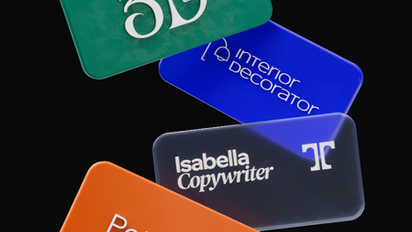Ch.AI Website Challenges
The Ultimate Guide to Ch.AI Website
Ch.AI Website
Website Design Process: A Step-by-Step Guide

What Is Ch.AI Website?
Ch.AI Website
No code web builders, also known as visual development platforms, are designed to simplify the website creation process by eliminating the need for coding. Instead of writing complex HTML, CSS, and JavaScript code, users can simply drag and drop pre-designed elements, such as text, images, buttons, and forms, onto a canvas to create their desired layout. This intuitive interface makes it easy for users to visualize their website structure and design in real-time, making it ideal for those who are not familiar with coding languages.
One of the key advantages of using a no code web builder is the time and cost savings it offers. Traditional web development projects can be time-consuming and expensive, as they often require hiring a professional web developer or designer to code the website from scratch. With a no code web builder, individuals and businesses can create a website in a fraction of the time and at a fraction of the cost. This makes it an ideal solution for small businesses, startups, and individuals who are looking to establish an online presence quickly and affordably.
Another major benefit of using a no code web builder is the flexibility and customization it offers. With a wide range of pre-designed templates, themes, and modules to choose from, users can easily create a unique and personalized website that reflects their brand identity and vision. Additionally, most no code web builders come equipped with advanced features, such as e-commerce integration, SEO optimization, and mobile responsiveness, allowing users to create a professional-looking website that meets their specific needs and goals.
Furthermore, no code web builders are designed to be user-friendly and accessible to individuals of all skill levels. Whether you are a complete beginner or an experienced web developer, you can easily navigate the platform and create a website that meets your requirements. Most no code web builders come with step-by-step tutorials, customer support, and community forums to assist users in building their websites effectively. This level of support and guidance ensures that users can create a high-quality website without feeling overwhelmed or intimidated by the process.
In addition to their ease of use and cost-effectiveness, no code web builders are also beneficial for maintaining and updating websites in the long run. Traditional websites built with custom code often require ongoing maintenance, updates, and bug fixes, which can be time-consuming and expensive. No code web builders simplify the maintenance process by providing users with intuitive tools for editing, updating, and adding new content to their websites. This eliminates the need for ongoing support from a professional developer, allowing users to manage and maintain their websites independently.
As the demand for easy-to-use website building tools continues to grow, the market for no code web builders has expanded rapidly in recent years. A wide range of platforms, such as Wix, Squarespace, Weebly, and WordPress, offer no code web building solutions that cater to different industries, business sizes, and budgets. Whether you are a small business owner looking to create a simple brochure website or an e-commerce entrepreneur in need of a robust online store, there is a no code web builder available to meet your needs.
To ensure that your website meets accessibility standards, it is important to use a website accessibility checker. These tools help you identify areas on your website that may not be accessible to all users, allowing you to make the necessary changes to improve your site’s accessibility.
One popular website accessibility checker is the Web Content Accessibility Guidelines (WCAG) checker. WCAG is a set of guidelines for making web content more accessible to people with disabilities. These guidelines are broken down into four principles: perceivable, operable, understandable, and robust. The WCAG checker evaluates your website based on these principles and provides you with a list of issues that need to be addressed to improve accessibility.
Another website accessibility checker is Axe, which is a free open-source tool developed by Deque Systems. Axe scans your website for accessibility issues and provides detailed reports on areas that need improvement. The tool is easy to use and provides actionable recommendations for improving accessibility.
In addition to these tools, there are also browser extensions like Wave and AInspector that allow you to check the accessibility of your website in real-time as you browse. These extensions highlight accessibility issues on your site and provide recommendations for fixing them.
When using a website accessibility checker, it is important to keep in mind that no tool is perfect. While these tools can help identify common accessibility issues, it is also important to conduct manual testing to ensure that your website is truly accessible to all users. Manual testing involves using assistive technologies such as screen readers and keyboard navigation to navigate your site as a person with disabilities would.
It is also important to stay updated on the latest accessibility guidelines and best practices. The web accessibility landscape is constantly evolving, and it is important to stay informed about new developments in the field. By staying informed and regularly testing your website for accessibility, you can ensure that your site is accessible to all users.
In addition to ensuring compliance with accessibility laws and guidelines, improving website accessibility also benefits your business. By making your website more accessible, you can reach a wider audience and improve the user experience for all visitors. This can lead to increased engagement, higher conversion rates, and improved search engine rankings.

How to Master Ch.AI Website
Ch.AI Website
In conclusion, web app development is a complex and multi-faceted process that involves a combination of front-end and back-end technologies. By following a structured approach and using the right tools and technologies, developers can create dynamic and user-friendly apps that enhance the digital experience for users. From gathering requirements to deployment, each step of the development process is critical to ensuring the success of the app and meeting the needs of the target audience.


